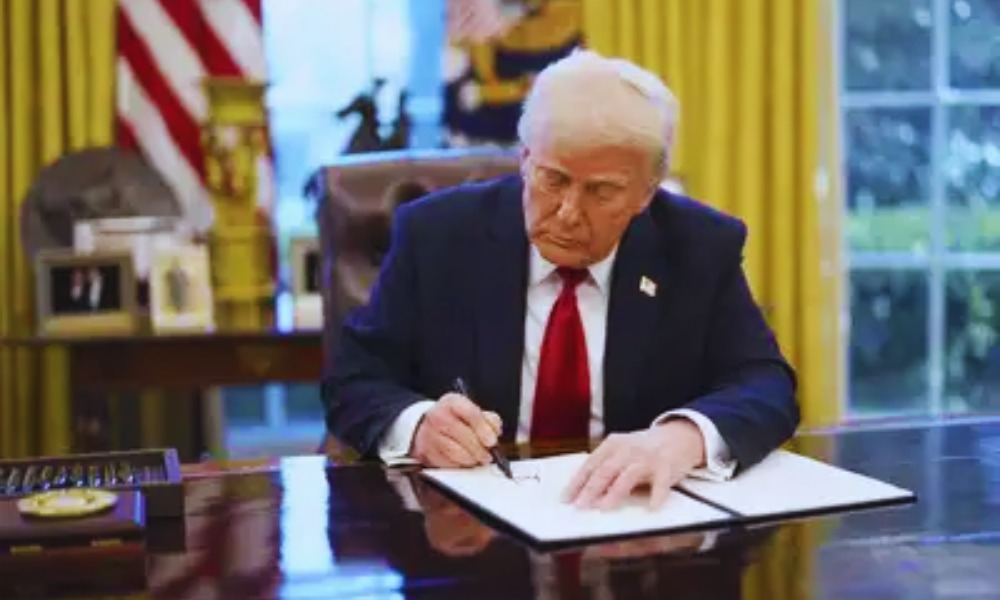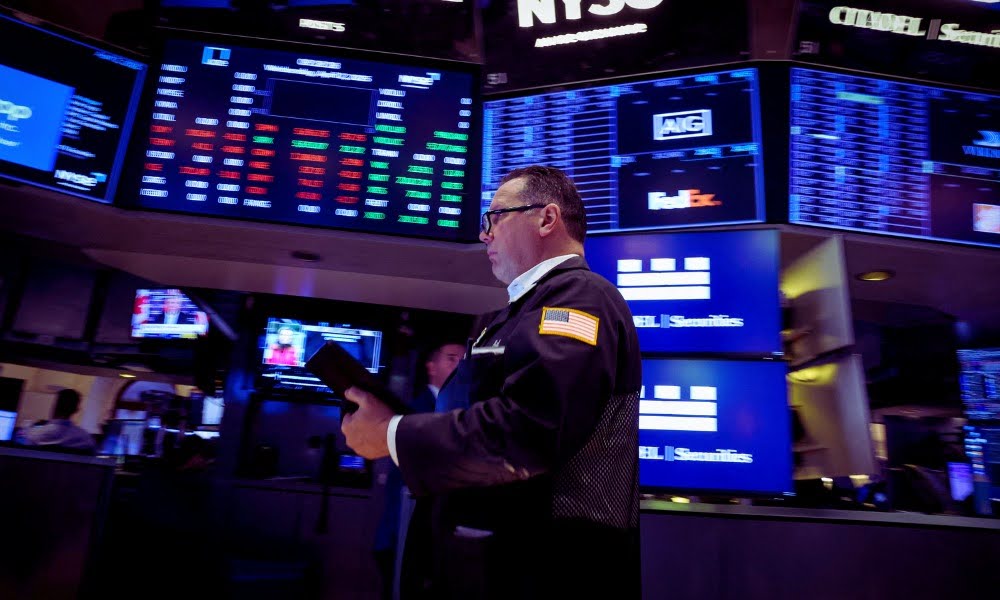Indian Auto Stocks Plunge as Trump Imposes 25% Tariff on Imported Vehicles

Indian automobile stocks took a significant hit on Thursday after US President Donald Trump announced a 25% tariff on all imported vehicles and parts.
The move, intended to boost domestic manufacturing and generate $100 billion annually, sparked concerns about a potential recession.
Tata Motors led the decline, with its stock dropping 6.7% to ₹661.35, bringing its market capitalization below ₹2.45 lakh crore. Jaguar Land Rover (JLR), Tata Motors’ subsidiary, has significant exposure to the US market.
Tata Motors’ stock has already fallen 44% from its 52-week high of ₹1,179.05 and is down 33% over the last six months.
Broader Impact on Indian Auto Stocks
The downturn was not limited to Tata Motors. Ashok Leyland’s stock dropped 4.6% to ₹205.05, reducing its total market valuation to below ₹61,500 crore. The stock had closed at ₹214.95 on Wednesday and is down 23% from its 52-week high of ₹264.70.
Other major players also saw declines:
- Mahindra & Mahindra and Hyundai Motor India fell over 1.7% each to ₹2,696 and ₹1,680.25, respectively.
- Maruti Suzuki India dipped 0.7% to ₹11,650.
- Force Motors slipped 1% during the day.
Ashok Leyland’s UK Operations Under Review
Ashok Leyland is considering closing Switch’s manufacturing and assembly operations in the UK due to weak demand for electric buses and an uncertain outlook for e-buses. Employee consultations have already begun.
Motilal Oswal sees the restructuring as a positive step since Switch UK will no longer weigh on consolidated earnings. The brokerage noted that neither of the Switch entities would require near-term funding support.
However, an increase in promoter pledge remains a concern. Motilal Oswal maintained a ‘buy’ rating on Ashok Leyland with a target price of ₹255.
Analysts Remain Optimistic About the Auto Sector
Despite the setback, Nuvama Institutional Equities remains constructive on the automotive sector.
It projects high single-digit growth in tractors, SUVs, and two-wheelers between FY25 and FY27, outpacing commercial vehicle growth. Nuvama has identified TVS Motor, Mahindra & Mahindra, Motherson Sumi, and Uno Minda as top picks in the auto and auto ancillary space.
Global Auto Stocks Also Hit Hard
The tariff announcement affected not just Indian automakers but also global auto companies.
- Toyota and Honda (listed in Tokyo) dropped over 3% each, while Nissan fell 2.5%.
- Hyundai (listed in Seoul) declined over 4% in early trading.
- In the US, General Motors, Ford, and Stellantis also experienced sharp declines in after-hours trading.
Tariff Details and Market Reaction
Trump’s 25% tariff on foreign-made cars and light trucks will take effect on April 3. The President views tariffs as a tool to increase revenue and revitalize the US industrial sector. He stated:
“What we’re going to be doing is a 25% tariff for all cars that are not made in the United States.”
Following the announcement, Tata Motors’ stock fell 6.65% to ₹661.10 on the NSE, while Samvardhana Motherson dropped 7.5% to ₹124.73. Sona BLW Precision fell 4.63% to ₹473.95, and Bharat Forge declined 3% to ₹1,147.95.
The NIFTY Auto Index dropped 1.38% to 21,442.25, with 13 out of 15 stocks in the red.
JLR’s US Exposure and Future Prospects
The US is a key market for JLR, accounting for nearly one-third of its 2024 sales. According to JLR’s annual report for FY24, 22% of its overall sales came from the US market.
Tata Motors’ management recently reaffirmed that JLR would meet its Q4 guidance of a 10% EBIT margin and become net debt-free by the end of FY25.
JLR’s performance in the North American market remains strong, while the EU and UK markets are beginning to show improvement. Demand in China remains weak, but JLR has outperformed its peers in that region.
JLR expects to manage variable marketing expenditure (VME) as Jaguar volumes decline, maintaining VME on Range Rover at 2-2.3%. However, higher labor and repair costs in the US may keep warranty expenses elevated.
Despite challenges, Tata Motors remains confident of meeting its FY25 guidance of £29 billion in revenue, an EBIT margin of at least 8.5%, and £1.3 billion in free cash flow. Capital expenditure is expected to peak in FY25/26, but the company still expects to turn net cash positive during FY25.
Samvardhana Motherson’s Outlook
Samvardhana Motherson, a leading auto parts maker, faces pressure from weak global auto volumes. Around 18% of its revenue comes from the US and 4% from Mexico.
The company generates about half of its revenue from bumpers and the rest from wiring harnesses, rearview mirrors, sunroofs, and dashboard panels.
Samvardhana Motherson reported a consolidated net profit of ₹879 crore for Q3 FY24, up from ₹542 crore in the same period last year. However, the figure fell short of analysts’ expectations due to sluggish global car sales.
Motherson supplies to major automakers, including Maruti Suzuki, Mercedes-Benz, Volkswagen, Audi, and BMW.
Brokerage View on Tata Motors
Brokerages are cautiously optimistic about Tata Motors despite the stock’s sharp decline from its July 2024 peak. CLSA has a “high conviction outperform” rating on the stock, noting that it trades at 1x FY27 Enterprise Value-to-EBITDA, well below the typical multiple of 2.5x.
Nuvama highlighted that if the US imposes tariffs, JLR would likely offset the impact through price hikes and cost reductions.









